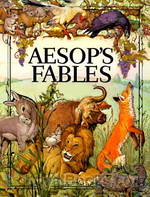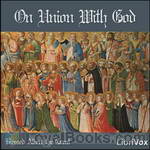|
Books Should Be Free Loyal Books Free Public Domain Audiobooks & eBook Downloads |
|
|
Books Should Be Free Loyal Books Free Public Domain Audiobooks & eBook Downloads |
|
Philosophy Books |
|---|
Book type:
Sort by:
View by:
|
By: Aristotle (384 BC - 322 BC) | |
|---|---|
 Physics
Physics
Physics (Greek: Φυσικὴ ἀκρόασις; Latin: Physica, or Physicae Auscultationes) discusses concepts including: substance, accident, the infinite, causation, motion, time and the Prime Mover. | |
 Magna Moralia
Magna Moralia
Magna Moralia (Ancient Greek: ΗΟΙΚΩΝ ΜΕΓΑΛΩΝ, English: Great Ethics) discusses topics including friendship, virtue, happiness and God. It is disputed whether Aristotle wrote Magna Moralia. This author concludes that it is absurd to suggest that God contemplates only God but does not propose an alternative activity for God. | |
By: Bhartṛhari (c. 400-500) | |
|---|---|
 Vairagya Shatakam
Vairagya Shatakam
Vairagya Shatakam is one of the best books that gives the true picture of Renunciation. The book talks on how a common man gets lured by the endless desires which when satisfied fetches him nothing but the desires again. It concludes saying how these unsatiable desires mislead the man from knowing his real nature-omnipotence, omnipresence and omniscience! | |
By: C. W. Leadbeater (1854-1934) | |
|---|---|
 Astral Plane: Its Scenery, Inhabitants and Phenomena
Astral Plane: Its Scenery, Inhabitants and Phenomena
As sceptics dismissed other-worldly phenomena as the stuff of legend, trickery or delusion, nineteenth-century 'occult science' set out to explain them scientifically. Here, C. W. Leadbeater maps out the scenery and inhabitants of the astral plane, accounting along the way for phenomena such as the journey of the soul after death, magic and sorcery, vampires and werewolves, pixies, gnomes and fairies, ghosts and shades, and communication with the departed in the seance room. A leading figure in the... | |
By: Confucius 孔子 (551-479 BCE) | |
|---|---|
 Analects of Confucius
Analects of Confucius
The Analects, or Lunyu, also known as the Analects of Confucius, are considered a record of the words and acts of the central Chinese thinker and philosopher Confucius and his disciples, as well as the discussions they held. Written during the Spring and Autumn Period through the Warring States Period (ca. 475 BC - 221 BC), the Analects is the representative work of Confucianism and continues to have a substantial influence on Chinese and East Asian thought and values today. William Jennings was a rector of Grasmere, and late colonial chaplain. He served at St. John's Cathedral in Hong Kong. | |
By: Georg Wilhelm Friedrich Hegel (1770-1831) | |
|---|---|
 Phenomenology of Mind, Volume 2
Phenomenology of Mind, Volume 2
Phänomenologie des Geistes is Georg Wilhelm Friedrich Hegel's most important and widely discussed philosophical work. Hegel's first book, it describes the three-stage dialectical life of Spirit. The title can be translated as either The Phenomenology of Spirit or The Phenomenology of Mind, because the German word Geist has both meanings. Phenomenology was the basis of Hegel's later philosophy and marked a significant development in German idealism after Kant. Focusing on topics in metaphysics,... | |
By: Harry A. Lewis | |
|---|---|
 Hidden Treasures
Hidden Treasures
"Some succeed while others fail. This is a recognized fact; yet history tells us that seven-tenths of our most successful men began life poor." A selection of mini-biographies teaches us how some successful men have overcome odds to make their mark on history. | |
By: John Locke (1632-1704) | |
|---|---|
 Essay Concerning Humane Understanding
Essay Concerning Humane Understanding
John Locke's essays on human understanding answers the question “What gives rise to ideas in our minds?”. In the first book Locke refutes the notion of innate ideas and argues against a number of propositions that rationalists offer as universally accepted truth. In the second book Locke elaborates the role played by sensation, reflection, perception and retention in giving rise to simple ideas. Then he elaborates on how different modes, substances and relations of simple ideas (of the same kind) give rise to complex ideas v... | |
 Essay Concerning Human Understanding Book II
Essay Concerning Human Understanding Book II
John Locke wrote four essays on human understanding. Here are a few quotes from the book: "I see no reason to believe, that the soul thinks before the senses have furnished it with ideas to think on. The dreams of sleeping men are, as I take it, all made up of the waking man's ideas, though for the most part oddly put together. Can the soul think, and not the man, or a man think, and not be conscious of it? Suppose the soul of Castor separated, during his sleep, from his body, to think apart. Let us suppose too, that it chooses for its scene of thinking the body of another man, v... | |
By: John Woolman (1720-1772) | |
|---|---|
 Journal of John Woolman
Journal of John Woolman
John Woolman was born at Northampton, N. J., in 1720, and died at York, England, in 1772. He was the child of Quaker parents, and from his youth was a zealous member of the Society of Friends. His “Journal,” published in 1774, describes his way of life and the spirit in which he did his work; but his humility prevents him from making clear the importance of the part he played in the movement against slaveholding among the Quakers. In 1742, Woolman, then a young clerk in the employment of a storekeeper in New Jersey, was asked to make out a bill of sale for a negro woman; and the scruples which then occurred to him were the beginning of a life-long activity against the traffic... | |
By: Max Arthur Macauliffe (1841-1913) | |
|---|---|
 Sikh Religion: its Gurus, Sacred Writings and Authors, Volume 6
Sikh Religion: its Gurus, Sacred Writings and Authors, Volume 6
This is one of the first comprehensive books about the Sikh religion in the English language. Macauliffe had extensive access to manuscripts of the Sikh sacred writings , as well as support from Sikh scholars and leaders of the time. This volume covers Bhagats of the Granth Sahib. | |
By: Plato (Πλάτων) (c. 428 BC - c. 347 BC) | |
|---|---|
 Republic (version 2)
Republic (version 2)
The Republic is a Socratic dialogue written by Plato around 380 BC concerning the definition of justice and the order and character of the just city-state and the just man. It is Plato's best-known work and has proven to be one of the most intellectually and historically influential works of philosophy and political theory. In it, Socrates along with various Athenians and foreigners discuss the meaning of justice and examine whether or not the just man is happier than the unjust man by considering a series of different cities coming into existence "in speech", culminating in a city (Kallipolis) ruled by philosopher-kings; and by examining the nature of existing regimes... | |
 Gorgias
Gorgias
This dialogue brings Socrates face to face with the famous sophist Gorgias and his followers. It is a work likely completed around the time of "Republic" and illuminates many of the spiritual ideas of Plato. The spirituality, as Jowett points out in his wonderful introduction, has many ideas akin to Christianity, but is more generous as it reserves damnation only for the tyrants of the world. Some of the truths of Socrates, as presented by Plato, shine forth in this wonderful work on sophistry and other forms of persuasion or cookery. | |
 Protagoras
Protagoras
Jowett, in his always informative introduction, sees this dialogue as transitional between the early and middle dialogues. Socrates meets with Protagoras and other sophists and pursues his inquiry into virtue. The dialectic brings the thinkers to a surprising ending. Socrates narrates this dialogue. | |
 Critias
Critias
This is an incomplete dialogue from the late period of Plato's life. Plato most likely created it after Republic and it contains the famous story of Atlantis, that Plato tells with such skill that many have believed the story to be true. Critias, a friend of Socrates, and uncle of Plato was infamous as one of the bloody thirty tyrants. | |
 Alcibiades I
Alcibiades I
As Jowett relates in his brilliant introduction, 95% of Plato's writing is certain and his reputation rests soundly on this foundation. The Alcibiades 1 appears to be a short work by Plato with only two characters: Socrates and Alcibiades. This dialogue has little dramatic verisimilitude but centres on the question of what knowledge one needs for political life. Like the early dialogues, the question is on whether the virtues needed by a statesman can be taught, on the importance of self-knowledge as a starting point for any leader... | |
 Lesser Hippias
Lesser Hippias
This work may not be by Plato, or his entirely, but Jowett has offered his sublime translation, and seems to lean towards including it in the canon. Socrates tempted by irony to deflate the pretentious know-it-all Hippias, an arrogant polymath, appears to follow humour more than honour in this short dialogue. | |
By: Prentice Mulford (1834-1891) | |
|---|---|
 Thoughts Are Things
Thoughts Are Things
Thoughts are Things, authored by Prentice Mulford, is one of the earliest books espousing New Thought teaching. This book contains information on how to better man's spiritual and physical life through the power of thought. Discover timeless spiritual wisdom that, when practiced, will enrich your life and deepen your understanding of Universal Truth | |
 Thoughts are Things (Version 2)
Thoughts are Things (Version 2)
Prentice Mulford was also instrumental in the founding of the popular philosophy, New Thought, along with other notable writers including Ralph Waldo Emerson. Mulford's book, Thoughts are Things, served as a guide to this new belief system and is still popular today. | |
By: Robert G. Ingersoll (1833-1899) | |
|---|---|
 Ingersoll on ABRAHAM LINCOLN, from the Works of Robert G. Ingersoll, Volume 3, Lecture 3
Ingersoll on ABRAHAM LINCOLN, from the Works of Robert G. Ingersoll, Volume 3, Lecture 3
Col. Ingersoll begins his popular lecture series on famous persons as follows: "It is hard to overstate the debt we owe to the men and women of genius. Take from our world what they have given, and all the niches would be empty, all the walls naked—meaning and connection would fall from words of poetry and fiction, music would go back to common air, and all the forms of subtle and enchanting Art would lose proportion and become the unmeaning waste and shattered spoil of thoughtless Chance." One... | |
By: Various | |
|---|---|
 American Philosophy Collection Vol. 1
American Philosophy Collection Vol. 1
This collection of articles in early 20th Century American philosophy focuses on the topics of realism, experience, and ideas, with particular attention to the pragmatic naturalism of John Dewey. In tracks 1-5, Dewey responds to critics of his famous article “The Postulate of Immediate Empiricism” (available in Short Nonfiction Collection Vol.034). Tracks 6-12 constitute a series of pointed debates between Dewey and E. B. McGilvary on the topics of time, ideas, and reality. Tracks 13-16 include stand-alone articles on related topics, including Dewey’s influential critique of “The Reflex Arc Concept in Psychology... | |
By: Vincent Van Gogh (1853-1890) | |
|---|---|
 Letters of a Post-Impressionist
Letters of a Post-Impressionist
“Being the Familiar Correspondence of Vincent Van Gogh ... [Van Gogh's] art was appreciated during his life only by a very few and it is but within recent years that it has found admirers who in many cases have been most ardently enthusiastic. Of the following letters, some were addressed to his brother and the remainder to his friend E. Bernard. | |
By: A. B. (Artemas Bowers) Muzzey (1802-1892) | |
|---|---|
 The Young Maiden
The Young Maiden
| |
By: Abdu’l-Bahá ‘Abbás (1844-1921) | |
|---|---|
 Talks by Abdul Baha Given in Paris
Talks by Abdul Baha Given in Paris
“Much has already been written of the visit of Abdul Baha, Abbas Effendi, to Europe,” writes Lady Blomfield in her Preface to Paris Talks, “During his stay at Paris at 4, Avenue de Comoens, he gave short “Talks” each morning to those who crowded, eager to hear His Teaching. These listeners were of many Nationalities and types of thought, learned and unlearned, members of various religious sects, Theosophists and Agnostics, Materialists and Spiritualists, etc., etc. Abdul Baha spoke in Persian, which was translated into French... | |
By: Adam Smith (1723-1790) | |
|---|---|
 The Theory of Moral Sentiments (First Edition)
The Theory of Moral Sentiments (First Edition)
“How selfish soever man may be supposed, there are evidently some principles in his nature, which interest him in the fortunes of others, and render their happiness necessary to him, though he derives nothing from it, except the pleasure of seeing it.” (from The Theory of Moral Sentiments) Adam Smith considered his first major book, The Theory of Moral Sentiments, his most important work. Indeed, the tome was a wild success upon its publication, selling out immediately. It has not lost popularity since... | |
By: Advisory Committee on Human Radiation Experiments | |
|---|---|
 Final Report of the Advisory Committee on Human Radiation Experiments
Final Report of the Advisory Committee on Human Radiation Experiments
Researchers in the United States have performed thousands of human radiation experiments to determine the effects of atomic radiation and radioactive contamination on the human body. Most of these tests were performed, funded, or supervised by the United States military, Atomic Energy Commission, or various other U.S. federal government agencies. The experiments included a wide array of studies, involving things like feeding radioactive food to mentally disabled children, deliberately releasing radioactive chemicals over U... | |
By: Aesop (620 BC - 563 BC) | |
|---|---|
 Aesop's Fables
Aesop's Fables
As children, our first experience of the magic of talking animals, the conflict between good and evil, the battle of wits between the cunning and the innocent most probably came from Aesop's Fables. These delightful, pithy and brief narratives are simple, easy to understand and convey their message in a memorable and charming fashion. Aesop's Fables by Aesop consists of about 600 tales, some well-loved and familiar, others less known but just as entertaining and educative and help us map the perimeters of our moral universe... | |
By: Agnes H. Morton | |
|---|---|
 Etiquette
Etiquette
| |
By: Albert Jeremiah Beveridge (1862-1927) | |
|---|---|
 The Young Man and the World
The Young Man and the World
| |
By: Albert Schweitzer (1875-1965) | |
|---|---|
 The Quest of the Historical Jesus
The Quest of the Historical Jesus
In this book, Schweitzer traces the historical progress of 'Historical Jesus' research, from Hermann Reimarus in the mid 18th century, to William Wrede at the turn of the 20th. Schweitzer showed how Jesus' image had changed with the times and with the personal proclivities of the various authors. He concluded with his own synopsis and interpretation of what had been learned over the course of the previous century. He took the position that the life of Jesus must be interpreted in the light of Jesus' own convictions, which he characterized as those of late Jewish eschatology. (Introduction from Wikipedia, modified by JoeD) | |
By: Albert Shaw (1857-1947) | |
|---|---|
 The business career in its public relations
The business career in its public relations
| |
By: Albertus Magnus (1193-1280) | |
|---|---|
 On Union With God
On Union With God
Surely the most deeply-rooted need of the human soul, its purest aspiration, is for the closest possible union with God. As one turns over the pages of this little work, written by Blessed Albert the Great towards the end of his life, when that great soul had ripened and matured, one feels that here indeed is the ideal of one's hopes. (From the Preface) | |